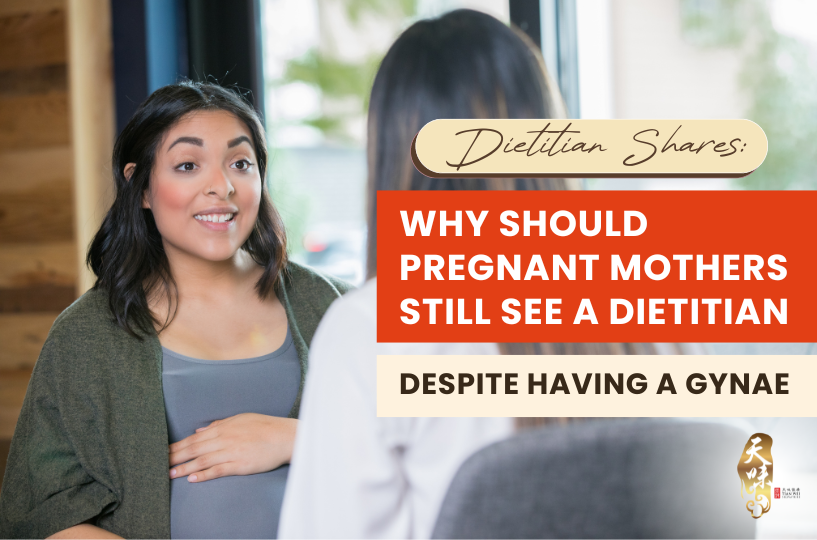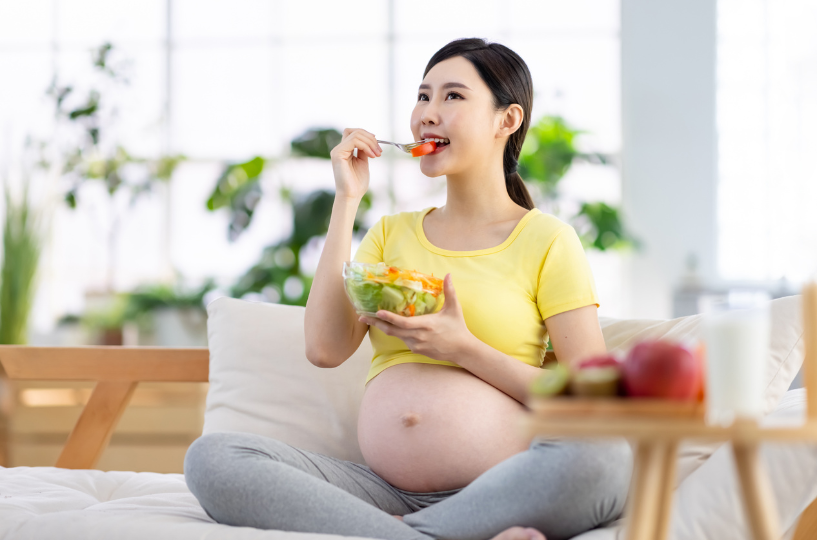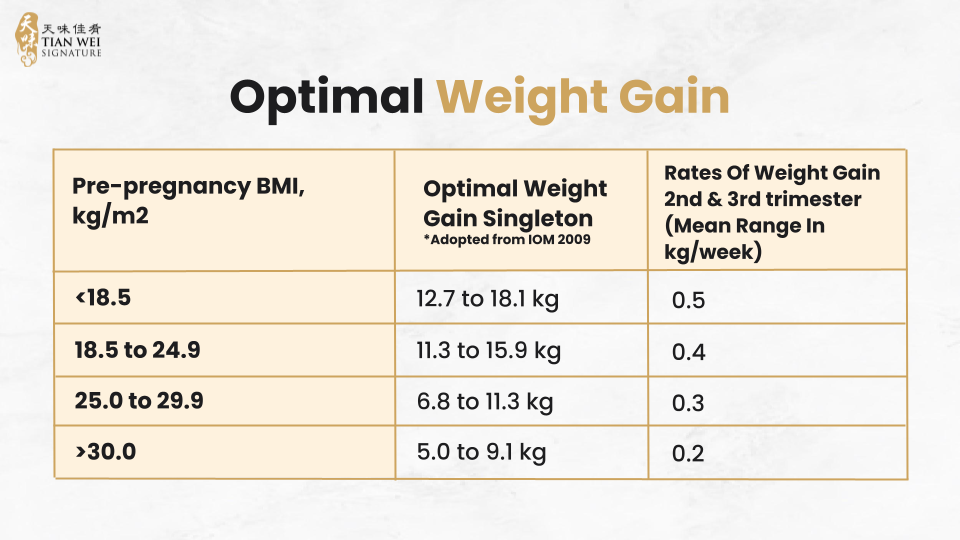81 Tagore Lane, TAG A, #01-11 Singapore 787502 ♦ Reservation : +65 6727 5599
Dietitian Shares: Why Should Pregnant Mothers Still See A Dietitian Despite Having a Gynae

Nutrition and Epigenetics
The first 1000 days is a period during pregnancy until the baby turns 2 years old where nutrition and lifestyle play a part in having an impact on your child’s future health risk. Research has found that when mothers have good nutritional practices and have an active lifestyle it carries a positive impact to not only the child she’s carrying but her future grandchildren too. There is also an increasing awareness that children who obtain the right nutrition during pregnancy, infancy and toddlerhood are more likely to:
- Be born at a healthy birth weight
- Grow up to be a better learner with fewer behavioural problems
- Have lower risks of obesity, type 2 diabetes, heart disease and allergies
Minimising Risk of Gestational Diabetes Mellitus
Gestational Diabetes is one of the main concerns in most mummies and healthcare professionals. Did you know that 15-20% of all pregnancies in Singapore are affected by diabetes during pregnancy? That is almost 1 in every 5 pregnant women.
Those who are most susceptible to having gestational diabetes during pregnancy are those with a body mass index higher than 23, a family history of diabetes and previously received a diagnosis of gestational diabetes in the last pregnancy. Although some people have a higher risk, gestational diabetes can happen to any mother. Thus, as part of the usual practice, all women are offered screening for gestational diabetes during the 24th to 28th week of pregnancy.
Thus, setting up your goals as early as possible and understanding what is needed to reduce your risk of gestational diabetes during pregnancy is vital. Research has found that achieving optimal weight gain, having an exercise programme early in pregnancy and committing to it throughout pregnancy has been promising in reducing the risk of diabetes during pregnancy. Besides that, a pregnancy diet that emulates the Mediterranean diet which emphasizes a high fruit and vegetable intake of as much as 7 servings per day or more is thought to be beneficial too.

Achieving Optimal Weight Gain During Pregnancy
Research found that almost 60% of Singaporean women do not have optimal weight gain during pregnancy.
Weight is such a controversial topic to discuss these days. There is a debate that there is health at every size and weight is just a number. This concept is particularly important especially if one’s relationship with food is unhealthy and is leading to disordered eating.
Although this is true there are many other studies that show how physical activity, the reduction in lower visceral and subcutaneous fat is linked with a lower risk of heart disease, cholesterol, hypertension and many more. Similarly, during pregnancy, excessive weight gain is linked with a higher risk of other complications of pregnancy such as gestational diabetes, pre-eclampsia and many more.
Thus, it is important to understand what the appropriate weight gain is for yourself during pregnancy so that suboptimal weight gain can be avoided. The suggested weight gain recommendation is based on your pre-pregnancy body mass index as per below:

The recommended weight gain for one with normal body mass index at pre-pregnancy is around 11.3 to 15.9kg by the end of pregnancy. As this is only a general guide, the recommended weight gain can look different based on various factors such as existing medical conditions, physical activity and single or multiple babies.
Optimising Nutritional Intake
Did you know that women with a higher body fat percentage have a higher requirement for Vitamin D? A general vitamin D supplementation may not suffice as minor Vitamin D deficiency is linked with an increased risk of preeclampsia, gestational diabetes and low birth weight babies. Furthermore, despite living in a very sunny country all year round like Singapore, many of us are almost always indoors until the Sun. Thus individualised recommendation of Vitamin D supplements and food is needed.
Besides that, many women experience different side effects during pregnancy. The majority of women experience nausea and vomiting during pregnancy. Left unmanaged, pregnant mummies will not be able to gain weight adequately and would be at higher risk of giving birth to pre-term babies or low birth weight babies. The internet can be a quick and convenient way to obtain some tips on how to manage some side effects of pregnancy. However, there is so much mixed information, that it can be really overwhelming for one to read all the information online not knowing which would work best.
Seeing a Dietitian who specialises in nutrition would be able to give scientific evidence-based tips to help you manage your side effects during pregnancy safely. An individualised healthy pregnancy diet menu can be provided by a dietitian which meets your nutritional needs while also managing these side effects well.







